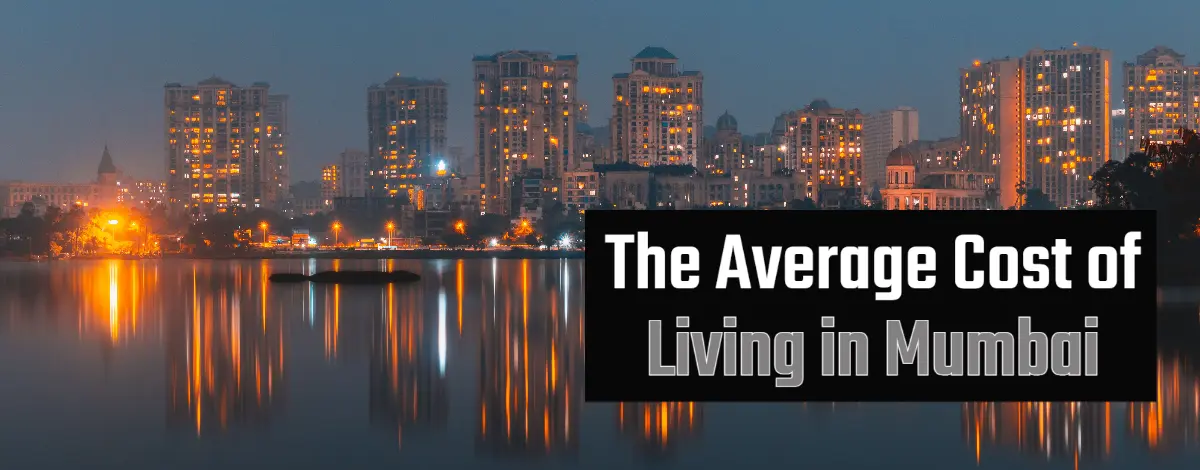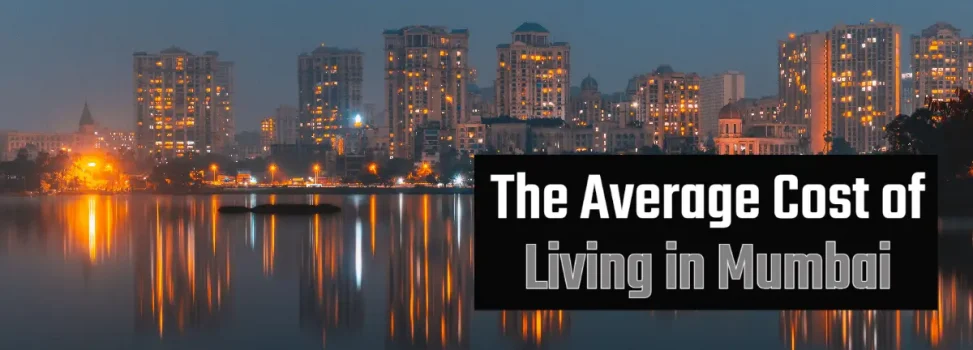Relocation to Mumbai? Families, bachelors, couples, and students may all have different monthly living expenses in Mumbai than other consumer groups including couples, singles, and families.
Mumbai’s cost of living factors include:
Accommodation:
One of the major dwelling expenditures in Mumbai is the price of a house to live in. Prices are assessed depending on the property’s area and the kind you select, whether you are purchasing or renting it.
Electricity:
The cost of power varies per unit depending on the zone and locality of the property and is between Rs. 2.93 and Rs. 9.80.
Groceries:
When you purchase groceries digitally, the cost is higher, and there are extra delivery fees.
Entertainment/Shopping:
Cinemas, recreational places, tourist destinations, historical sites, and places of worship are just a few of the entertaining possibilities in Mumbai. For shoppers with different budgets, there is a variety of shopping options, including street shopping centers, department shops, and supermarkets.
Bachelor’s Cost of Living in Mumbai:
In Mumbai, a bachelor’s basic expenditures include things like rent, food, and transportation.
Apartment Purchasing/Renting in Mumbai:
In Mumbai, it is simple for bachelor men to locate a cheap rental property. If the food option is part of the package, the fees can go up.
The cost of transportation
Thanks to the Mumbai metro, local trains, and other public transportation options, people can easily get around the city.
Living Expenses:
Your quality of life and lifestyle could affect your cost of living in Mumbai. The cost of living in Mumbai can vary depending on whether a person often goes out and has fun or stays home and watches movies with their family.
Housekeeping costs:
In Mumbai, residents of gated communities are exempt from paying extra maintenance and other service fees. However, free-living may need you to pay an extra fee of up to Rs. 5,000 for services like Wi-Fi, power, general upkeep, etc.
Families’ Cost of Living in Mumbai:
Property Rental/Purchase in Mumbai:
In Mumbai, the cost of renting a typical-sized 2 BHK apartment outside of the city center or at a decent distance from it ranges from Rs.40,000 to Rs.50,000. Based on the area and the size of the flat, buying a 2 or 3 bedrooms home in Mumbai will set you back crores.
The costs of transportation:
The majority of families choose to commute by private vehicle, which can be more expensive than using public transportation like buses, metro, local trains, etc.
Housekeeping costs:
In Mumbai, a family with children must pay for things like clothing, groceries, maid services, school tuition, and other expenses associated with their way of life. For a couple with a kid, the total cost of all these charges may range from Rs. 20,000 to 40,000 based on a variety of factors. The cost of childcare services would be included in the living expenditures in Mumbai.
Expenses related to a lifestyle:
In Mumbai, your basic expenditures may include a weekly meal at a restaurant of average quality or a monthly family outing.
Mumbai’s Cost of Living for Couples:
Purchasing/Renting Real Estate:
The 1 or 2 bedrooms in a typical neighborhood can cost between Rs. 1 crore and Rs. 1.5 crores to purchase.
Housekeeping costs:
For a couple residing in Mumbai, normal household costs can include maid services, upkeep, Wi-Fi, cooking, etc. If handled correctly, these costs may fall below 15,000 per month.
The cost of transportation:
Mumbai travelers who want to use public transportation may incur costs ranging from Rs. 700 to Rs. 2,000. In addition to the accommodation expenses in Mumbai, there will be additional costs for parking, service, security, and vehicle safety.
Mumbai’s cost of living for students:
See how students can easily manage to spend for their cost of living in Mumbai by managing to save money.
Accommodation:
Students do not have a large amount of pocket cash to waste, greater expenses, or any financial obligations. All they require is a rental apartment or shared housing with a kitchen and other facilities like a park, an elevator, and backup electricity.
Transportation:
Mumbai has a good system of public transit. Students who want to save money on transportation and lower their cost of living in Mumbai might choose to take the bus or the metro to work.
Mumbai’s Best Neighborhoods for Living:
Juhu:
This area includes a lot of luxury homes and flats and is home to many celebrities. A fantastic beach is also there.
Bandra:
A well-known neighborhood in Mumbai, it is renowned for its lovely beaches, closeness to the airport, and accessibility to popular tourist destinations including the Taj Mahal Palace hotel & Tower and Juhu Beach. There are numerous restaurants, bars, and retail centers there as well.
Versova:
This neighborhood is in South Mumbai, and there are several beaches nearby where you may unwind after a long day of sightseeing or working. The region is also renowned for being incredibly green, with dense trees all around, making it the perfect location for those who love the outdoors!
The greatest places to reside in Mumbai are those. Some of Mumbai’s upscale neighborhoods include Malabar Hill, Juhu, Bandra, Worli, Sea Face, and Versova.
Mumbai is one of the most expensive cities in the world and India to live in. The cost of living is higher in the urban area, based on your habits and the quality of life. Mumbai’s cost of living varies depending on who you are, whether you are a couple, a student, a bachelor, or a family. Additionally, it is influenced by purchasing habits, travel patterns, and the type of property ownership.
Mumbai is a congested metropolis that is rapidly growing. In the city, you can discover metropolitan developments and satellite communities. However, housing in the central districts can be pricey. Because of this, the bulk of tenants and homebuyers search for properties in eastern and western suburban communities that have enough infrastructure and commuting options.


